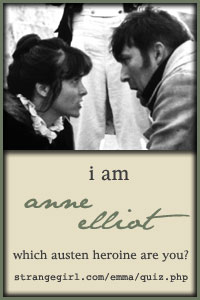I
brew and drink the genmaicha I bought in Santa Cruz inside the rain in the tea
and rug shop that made me think of Santa Fe, a low-roofed shop with wooden
floors and rough woven kilims in earthen colors and the saturated reds of plant
or mineral dyes. Green tea with roasted
brown rice, a few of the grains popped like popcorn. A tea that offers great comfort, that holds sagacity
and love in it.
The
flavor takes me back to where we first drank it, the rustic old Manago Hotel on
the road through the village of Captain Cook on the Big Island of Hawai'i. The one-room restaurant with its big screened
windows open to the ocean breezes where we went often over twenty-some years, which
my father knew first during the war. It
was always a favorite spot for pork chops and for local fish, served
family-style with bowls of sticky rice, potato or macaroni salad, tofu,
marinated seaweed. And a sacramental pot
of genmaicha.
The
old family hotel would make me think in turn of pensioni on the shores of one of the Italian lakes I fell in love
with in my late twenties after a failed marriage, maybe because it smelled of
cooking meat and fish and had that dazzling view of sun-struck water, or because
it was wound together all along with that nostalgic yearning memory of leisurely
meals shared at a simple tables midday with a group of family and friends.
Between
Keauhou Bay and Honaunau Bay, along the highway south through coffee country,
past the coffee mills and sausage trees, between the place we stayed and the
place where we left my father, in the end,
it
was exactly the right place to find ourselves again after we'd scattered his ashes. Homey and comforting. All of us starved, feeling the call to life, we
ate large helpings of pork chops and rice.
Besides "Mama," "Daughter," and "Auntie,"
Mom's Hawaiian singer friend who painted houses when his music didn't pay
enough, and told me about swimming with an 80-pound pet eel; the English
gardener whose father was a seacaptain and who brought little pecan tarts and
bags of papayas to my mother; and the wise and funny Honolulu-born elder, kupuna, who made jewelry from coral,
seed pearls, seed pods, and sharks' teeth.
Honaunau
Bay is just outside the City of Refuge, sacred ground to the ancient Hawaiians,
and an important place to us—closed just then, ironically, because of a
political standoff in Washington (something my father would have had some pithy
words to cover). So near to sacred
ground (appropriate for a much vaunted agnostic) we gathered between the
historical site and a tiny native fishing village with tin roofs at the boat
harbor, where locals park in big old beat-up vans to talk-story and drink beer.
The
captain of the outrigger canoe which took out the ashes was a fisherwoman too and
a breeder of terriers, and had a house on the mountain besides one on the bay
there in that fishing village, with five lava steps leading right down into the
water. Water the color of sapphires, my
father's September birthstone. She'd
made an altar, with a square of bright cloth, a pareo, laid out over a stone wall at the boat harbor, and flowers
in a ceremonial pattern on it—leis, white and butter yellow plumeria, dusty
lavender crown flowers. She had us put
the container of ashes ("Temporary Container") in the center, within the
circle of the middlemost lei, and any snapshots we had of "Papa." The picture by the cottonwood in Santa Fe, when
I was in eighth grade; and one up to his shins, pantlegs tidily rolled, in the
river in Yellowstone, where my parents had met.
Circled around it, we listened to "Amazing Grace" in Hawaiian,
and "Aloha Oe"; to a passage from Colette my mother had found; to a
tribute I'd written.
And
later we would eat pork chops and rice with chopsticks at a big square table in
an airy room with wooden walls and floors and big screened windows and the sea
below. We would drink genmaicha,
spilling a spontaneous offering from the lip of the ceramic teapot to the local
gods, who'd come and joined us as we sat and talked.
Reading
the tea leaves tells of the long skein of life past as well as the future. Fortune goes both ways. Backwards and on, ahead, glimpsed only in a
cup or glass, darkly. The earthy fragrance
and flavor of toasted rice, cupped in both hands, coaxes the necessary stories
out.
image:
Japanese Tea Sommelier




















No comments:
Post a Comment